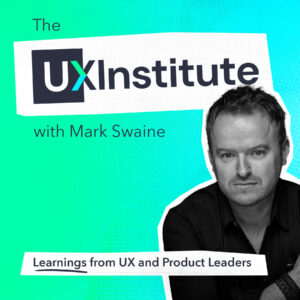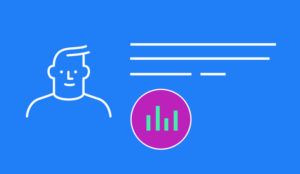Interview with UX Institute founder Mark Swaine
Can you tell us a bit about yourself?
I am a UX / Product Leader. I have been creating and designing software products for over 15 years with startups, growth stage companies and corporates, as well as VCs across North America, Canada and Europe. I educate and help companies reinvent products, create new products and services to reach MVP / Market Fit state. I direct workload around proposition with a UX/CX/Data and Business Model lense and help set product vision (end state). This can include helping leadership teams validate end state, explore peripherals and create an evolving roadmap.
I am constantly tinkering with new tech/platforms, looking for opportunities on how new experiences could exist. I spend any spare time I have self-educating in emerging tech ideating experience concepts.
Outside of my day to day role, my personal passions lie in car design, tech startup world, playing music and of course my family.
How would you best describe what UX Design is and what is the value of it?
I do think we have hit an inflection point around the understanding of what ‘UX’ is. Role titling varies and responsibility / expectation of of the job can be scattered.
UX, at its core, is based on research methodologies using a broad toolkit that can help define and validate how the proposition of a product, service or experience should work for the identified buyer persona. UX involves working with qualitative and quantitative data and insights, figuring out how core user workflows and journeys should function and how they can be continually tested and optimised. UX research allows companies to capitalise on both product and customer insight continually, enabling growth of platform and experience.
UX research is invaluable across startup, growth stage and corporates alike during product reinvention and new product and services creation. It’s value can help stakeholders determine whether a product or service should live, pivot or be killed. UX is one of the best workflows a company can execute to understand the true needs of customers and users.
What makes UXI courses different to others?
The biggest differentiator about our courses is the power of the faculty. We all come from within the industry - working daily with startups and corporates, leading UX and product creation.
One of the things that students will benefit most from is the fact that all of the learning material and direction will come directly from workplace case studies, sample projects and working environment experiences. They will also have access to faculty members for 1:1 mentoring sessions, which is hugely important.
Students will learn about the realities of being a UX practitioner within an agile team setting, corporates, growth stage companies and startups and will get to grips with the realities and expectations of their role. Our courses are setup to help UX practitioners, or budding UX practitioners, establish their workflow based on evolving product business models and customer expectations that are aligned to core KPIs.
What do you think will be the next ‘big thing’ in UX Design?
The next big thing in UX is already here and is being explored and built at great speed around us. Common workflows, tools and experiences with brands are being reimagined daily across emerging tech / platforms. Voice enabled experiences, the next wave of automated messaging platforms, automated/predictive SaaS tooling experiences, or even product subscription experience models, the list goes on!
On a micro level, for example, the importance of UX writing, wording and verbiage in product creation that drives conversion through experience is being highlighted more today. UX practitioners will soon more commonly contribute to the development of wording/language conversion guides in product.
What kind of career opportunities are available for UX Designers today?
UX career opportunities are constantly evolving. You can clearly see this across job postings from all types of companies. There are a plethora of UX role types evolving in startups, corporate teams and in emerging tech companies, some are generalist roles so you can learn and identify with areas of experience design you would like to focus on. Mature UX / Product teams in more established organizations, your role will be more defined in terms of scope, delivery and expectation.
Opportunities for UX Product Researchers across verticals, such as eCommerce, Fintech, SaaS, Voice, AR, Machine Learning and messaging products are growing in demand. These kinds of roles allow you to reimagine or ideate new products and services as new experiences in emerging paradigms.
Another area to focus on is UX/CX in innovation consulting in products, services and strategy creation. These kinds of roles allow you to champion UX led product workshop facilitation, prototyping and co creating with customers and key stakeholders within organisations. UX consulting drives growth of communication skills, management of stakeholder types, direction of workload and process. You can bring a lot of education and alignment to the client / company through focusing on the right customer problems. This can be really rewarding.
What are the biggest challenges you face as a UX Practitioner?
Common challenges can be organisational, cultural and typically human-imposed, as opposed to methodology or workflow imposed. What this means is, as a UX practitioner, I spend a lot of time talking and educating senior leadership teams (Founders/CEOs) on the importance of product research workflow, internally and externally with customers/users.
The mix of UX adaptability across corporates and growth stage companies varies massively. This is largely due to a lack of knowledge internally from the top down, coupled with ongoing higher prioritised business needs. This is always a challenge and requires compromise and constant communication on both sides.
Other common challenges can revolve around access to useful data, coupled with accessing the right stakeholders continually for input and validation. UX practitioners often find themselves misguided internally, due to a lack of vision or understanding of the end state (North Star) of the product or service they are working on. This is usually down to poor internal communication.
Another challenge can be assisting with hiring and building UX teams in tricky culture settings. Hiring talented UX practitioners can be hard and aligning their personal values with company culture can sometimes be even more difficult. UX role opportunities are in abundance and practitioners will move between roles/projects if the culture, environment or work setting does not align or deliver on what was promised.
What piece of advice would you give to someone looking to change career path and become a UX Designer?
UX is not a typical 9-5 job. UX / Product roles require an ‘always on’ acceptance / mentality, as you will be continually learning new tools, evolving processes, design patterns, frameworks and tech. Read, a lot, go to product / UX events and connect with communities and listen to podcasts weekly. If you are new to UX get into a course like ours, it is the best way to learn the fundamentals and get you started into the workplace as quickly as possible.
You don’t need to know every single UX process or tool in the box. If you only use a few that’s fine for your context / situation. Always try to remember to manage your own biases, co create with the customer / user, communicate clearly, ux is an exploration process and product experiences are always evolving.
Are UX skills applicable to other professions outside of being solely a ‘UX designer/practitioner’?
Some UX skill sets naturally apply and contribute to other functions within businesses, such as, product, innovation departments, R&D, and marketing and sales. Workload types such as, data analysis, insight gathering / generation and product proposition validation are universal across different company types / verticals. UX coherently aligns and provides direction into User Interface Design (UI) and design system creation. Differentiation of these roles and skill sets are misunderstood regularly.
Related Posts
UX Institute Podcast – Listen Now
UX Design for SaaS UX Design for SaaS (Software as a Service) is a 12-week virtual learning program for Startup Tech Founders, UX Designers, Product Managers, and Product Teams creating…
Read MoreUX Research Course – Personas
The UX Institute ‘User Research Course’ modules focus on deep metric based user (customer) research techniques, helping UXr’s focus on insights that drive activation, adoption and retention within a product.
Read MoreThe Official UX Institute Launches
Welcome to UXI. The UX Institute website launches offering UX Courses, Workshops and Mentoring.
Read More


